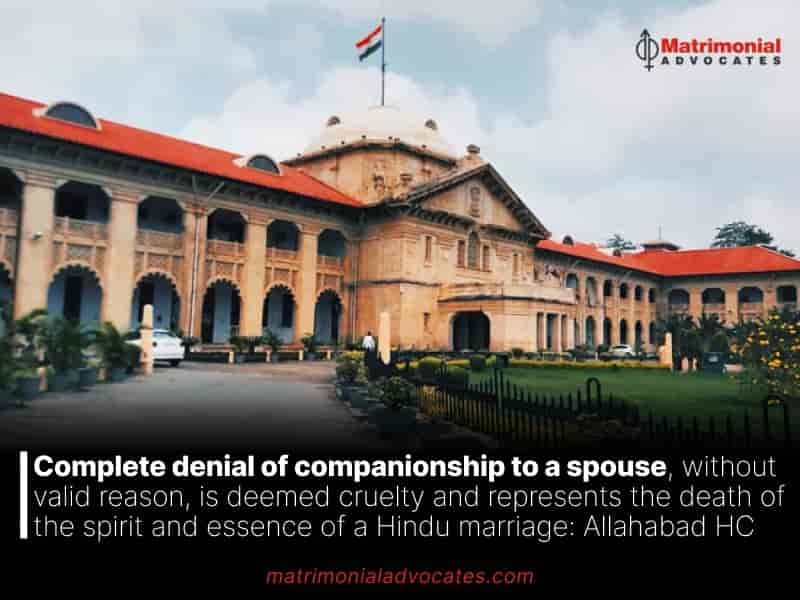
“A Hindu marriage is a sacrament and not just a social contract where one partner abandons the other without reason or just cause or existing or valid circumstance necessitating that conduct, the sacrament loses its soul and spirit, though it may continue to hold its external form and body.”
Allahabad High Court: In an appeal filed under Section 19 of the Family Courts Act, 1984, challenging the Family Court’s decision to dissolve the marriage under Section 13 of the Hindu Marriage Act, 1955, the division bench of Justices Saumitra Dayal Singh and Donadi Ramesh upheld the divorce decree. However, the High Court observed that the lower court had not addressed the issue of permanent alimony. As a result, the High Court has set the permanent alimony amount at ₹5,00,000, to be paid within three months from the date of this order.
Background:
The couple married in 1989 and had a child in 1991. They first separated after a few years but reunited in 1999 following a settlement. They lived together for a time but separated again on 11-11-1999. After reaching another settlement, they lived together from 21-03-2001, but their relationship deteriorated once more, and they have been separated since then.
The husband initially filed for divorce, but the case was withdrawn in 1995 due to a settlement. He later sought restitution of conjugal rights, but this was also withdrawn because the wife refused to live with him, as stated in separate legal proceedings under the Hindu Adoptions and Maintenance Act, 1956.
The husband alleged that the wife had been cruel from the start, and he claimed that this mistreatment led to his mother’s suicide by poisoning.
Analysis and Decision:
The Court observed that “cruelty” is not specifically defined by law. Referring to various Supreme Court decisions, it explained that cruelty can vary depending on individual behavior within a marriage and its impact on the other spouse.
The Court noted that completely denying a spouse’s company without a valid reason could be considered cruelty. It’s not just about physical presence or cohabitation; marriage involves sharing time and enjoying each other’s company. If one spouse intentionally refuses to do this without justification, it may be viewed as cruelty by the other spouse.
The Court also stated that completely severing emotional and social connections in a Hindu marriage could be seen as cruelty, particularly for the spouse left without any companionship.
In this case, the wife consistently refused to live with the husband and made it clear in other proceedings that she did not wish to continue their marriage. Although desertion was not cited as a reason for divorce, it was apparent that she had no intention of reuniting with the husband. Her refusal to renew the relationship for over 23 years, without any valid reason, was deemed cruel.
The Court upheld the divorce decision but noted that the lower court had not addressed the matter of permanent alimony. The Court ordered that the wife receive ₹5,00,000 in alimony, to be paid within three months. If the amount is not paid on time, it will accrue 8% interest from the end of the three-month period or from when the order is received, until it is fully paid.





